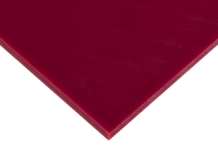
Researchers have demonstrated the large-scale fabrication of a new type of transparent conductive electrode film based on nano-patterned silver. Smartphone touch screens and flat panel televisions use transparent electrodes to detect touch and to quickly switch the color of each pixel. Because silver is less brittle and more chemically resistant than materials currently used to make these electrodes, the new films could offer a high-performance and long-lasting option for use with flexible screens and electronics. The silver-based films could also enable flexible solar cells for installation on windows, roofs and even personal devices.
In the journal Optical Materials Express, the researchers report the fabrication of a transparent conducting thin-film on glass discs 10 centimeters in diameter. Based on theoretical estimations that matched closely with experimental measurements, they calculate that the thin-film electrodes could perform significantly better than those used for existing flexible displays and touch screens.
“The approach we used for fabrication is highly reproducible and creates a chemically stable configuration with a tunable tradeoff between transparency and conductive properties,” said the paper’s first author, Jes Linnet from the University of Southern Denmark. “This means that if a device needs higher transparency but less conductivity, the film can be made to accommodate by changing the thickness of the film.”
Read more: Transparent, conductive films for developing flexible screens
thumbnail courtesy of phys.org















